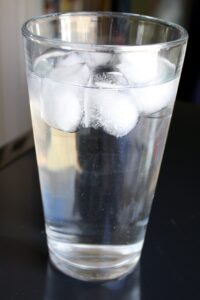Drinking Water Quality

Although it’s often taken for granted, drinking water quality is important for everyone. We can get our drinking water from multiple sources including public water systems, bottled water, and private wells and springs. State and federal regulations require public and commercial drinking water providers to regularly test their water and to ensure that it meets safe drinking water standards. That is not the case for private drinking water sources though. To ensure that your private water source is safe, you must have your water tested regularly.
Testing
Many different things can affect drinking water. Some fairly common contaminates include bacteria, metals, minerals, and chemicals. Some contaminates can be detected through fairly simple, low cost methods while others can tend to be expensive.
Penn State’s Drinking Water Testing Program recommends:
“In general, you should test your water annually for coliform bacteria and every three years for pH and total dissolved solids. If you are concerned about potential pollutants or if you are experiencing aesthetic problems such as staining, taste, or odor, more extensive testing is warranted.”
The U.S. Environmental Protection Administration’s (EPA) Private Drinking Water Wells webpage provides helpful information on potential contaminates and recommendations on what to test for in different circumstances.
Here are some additional water testing web resources (click on the links):
Homeowner water testing packages:
- Water Research Center – Homeowner Water Testing Information Site
- Penn State’s Drinking Water Testing Packages
- Kirby Memorial Health Center’s Environmental Laboratory
Water Well Construction
Another important factor in regards to drinking water is the construction of water wells. Unless the local municipality has enacted an ordinance, there are no mandated standards for the construction of a water well. In some regards, this well construction can be the single most important factor in protecting your water quality. Penn State’s Master Well Owners Network has many helpful resources about water wells, including information about proper well construction.